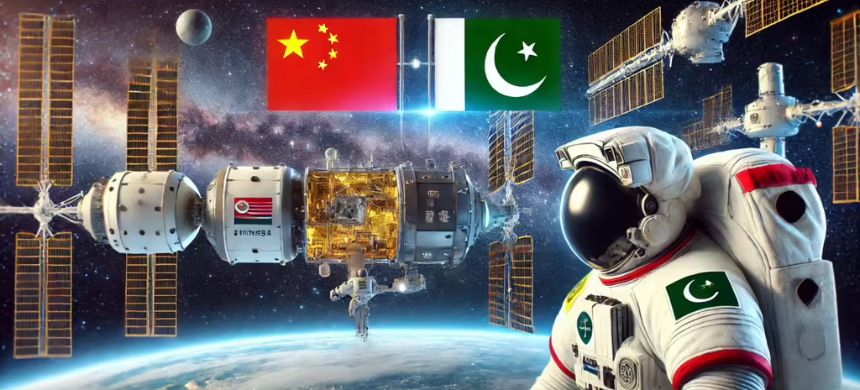Federal Minister for Planning Ahsan Iqbal met with Shan Zhongde, Chairman of the China Atomic Energy Authority and China’s Space Agency, in Beijing today. During the meeting, he confirmed that Pakistan plans to send its first astronaut to the Chinese space station in 2026.
The discussion centered on strengthening cooperation in nuclear energy and space research in line with Pakistan’s national development objectives.
Iqbal highlighted the significant role CPEC has played in addressing energy and infrastructure challenges in Pakistan. He mentioned that Pakistan-China collaboration in nuclear energy continues to grow, with projects like K-2, K-3, and C-5 nuclear power plants reflecting this partnership.
He said Prime Minister Shehbaz Sharif’s leadership has revitalized Pakistan’s space ambitions. Under the “Uraan Pakistan” initiative, the country is placing greater focus on space sciences and recently launched three satellites with China’s assistance.
Iqbal also shared that SUPARCO has been assigned the goal of launching a lunar mission by 2035. He pointed out that Pakistan offers a talented and cost-effective workforce that could support China’s space goals through joint training and development.
He mentioned the establishment of a Quantum Computing Center to address future technological demands. The minister also stressed the importance of deeper research cooperation between CAEC, SUPARCO, and the Pakistan Atomic Energy Commission for peaceful technological use.
He said the government is actively working to integrate science, technology, and engineering sectors into its broader development strategy and called for expanding Chinese educational exchange opportunities for young Pakistani scientists in space technology.
As Pakistan is focusing on space missions, Recntly Pakistan Successfully Launches Advanced Remote Sensing Satellite











